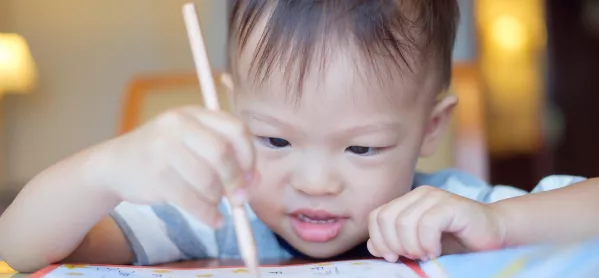At a time of great controversy surrounding the assessment of children in the first few weeks of school, it is important for school leaders to make careful decisions for their school community. And having weighed up the pros and cons, we have made the decision to sign up for the Reception baseline assessment (RBA) pilot. Here’s why.
We perceive the opportunity to take time to sit with each child individually during these early weeks as a hugely beneficial activity for the child and for the teacher.
Quick read: Schools asked to sign up for controversial baseline pilot
Background: Teachers vote to stop “immoral” baseline assessment
Read more: Reception baseline provider defends “robust” assessment
All teachers recognise the value in sitting with a child to ascertain their skills, knowledge and understanding. The RBA will give our teachers the opportunity to do this and they will receive a written statement on each child to use alongside other work to establish starting points for future learning.
Early years assessment
Some teachers are more skilled than others in determining what a child can do as they embark upon their early years education. We now have a tool that will help all teachers to sharpen their thinking and consider the questions that they now have about a child to inform their planning and delivery of teaching and learning.
And it won’t be too much upheaval. South Farnham schools already use age-adjusted standardised scores to ensure that teaching and learning is tailored to meet personalised needs. Our teachers find this work to be invaluable and that it helps to provide a holistic picture of each child upon entry.
It informs our EYFS provision and practice, too. The children are unaware that the time spent with the teacher is an assessment, just as they are unaware of this process happening in every lesson throughout the day. Teachers are continuously assessing each child whether through questioning, observation or through work scrutiny.
Appropriate activities?
We view the activities undertaken during RBA as very simple in design, short and age-appropriate. The RBA takes a child along an appropriate pathway as it will quickly ascertain if something is too challenging and will jump to the next section.
Any teacher who has been involved in baseline assessment before will understand this. It is not delivered as a formal test and only affects the child in a positive way. There is no mark and nothing “pinned” to the child as they progress through their school life. There is absolutely no requirement to prepare a child for this assessment.
A big bonus for us is the potential to replace key stage 1 statutory assessment if RBA pilots are successful; this would result in fewer statutory tests during the primary phase. Time will tell, though, if the new value-added progress measure here would result in a more accurate picture for schools.
It will be interesting to see how attitudes change towards RBA as the pilot progresses. There are many preconceived ideas about baseline assessment but we see this is an opportunity to challenge our thinking.
Claire Harnden is deputy CEO of the South Farnham Educational Trust

